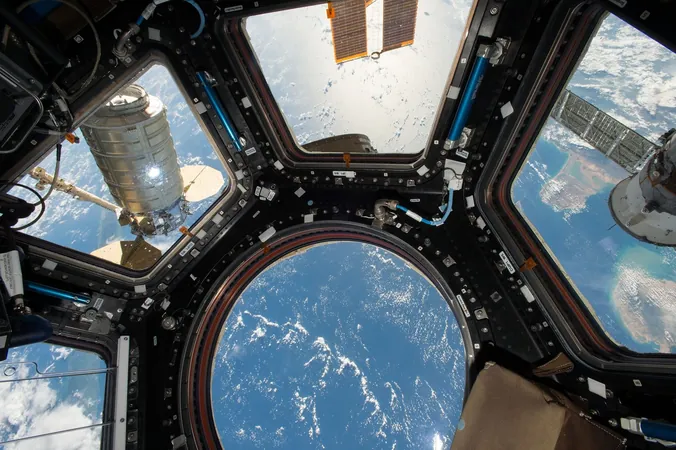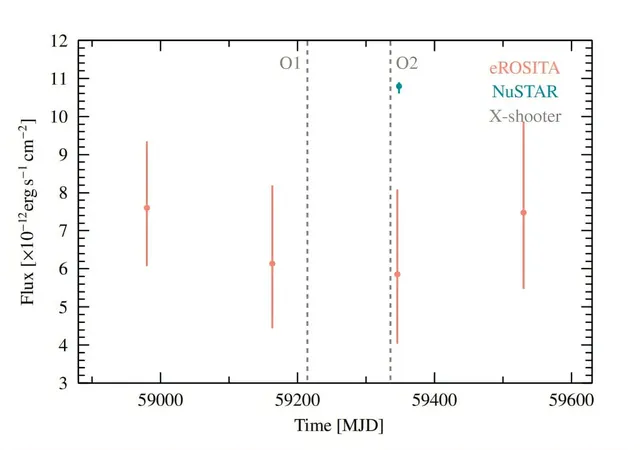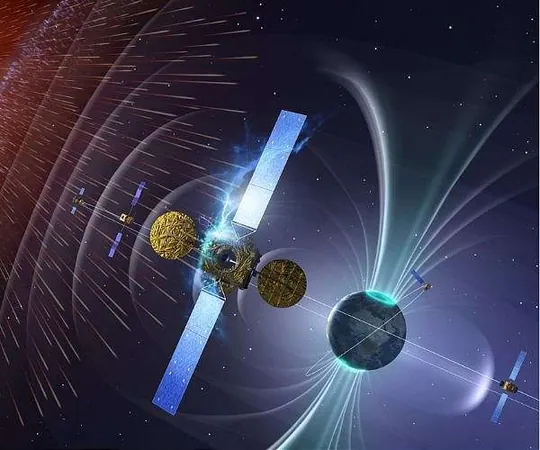
Astronauts Show Slower Task Processing in Space, Yet No Permanent Cognitive Damage Detected!
2024-11-20
Author: Ming
Introduction
As humanity pushes the boundaries of exploration, our brave astronauts face unique challenges in the harsh environment of space. New research highlights how even small mistakes in this setting can lead to catastrophic outcomes, prompting scientists to investigate the cognitive effects of long-duration space missions.
Research Overview
A recent groundbreaking study involving 25 astronauts who each spent an average of six months aboard the International Space Station (ISS) has shed light on how spaceflight impacts cognitive functions. This research represents the largest analysis of astronauts’ cognitive performance published to date, providing critical insights for future long-term missions to the Moon, Mars, and beyond.
Dr. Sheena Dev, a leading researcher at NASA's Behavioral Health and Performance Laboratory, delivered promising news: “Our findings indicate no significant cognitive impairment or signs of neurodegenerative decline among astronauts after their time on the ISS.” This finding is reassuring, as the extreme conditions of space - encompassing radiation exposure, altered gravitational forces, demanding work environments, and sleep deprivation - raise concerns about potential impacts on brain health.
Cognitive Performance: Slower but Steady
The study employed a series of 10 tests designed to evaluate a variety of cognitive skills across five critical time points: before the mission, during the flight (both early and late), and after their return to Earth (10 and 30 days post-mission). While astronauts displayed slower processing speeds, working memory, and attention during their time in space, their accuracy remained consistent with performance observed on Earth.
Interestingly, Dr. Dev noted variations in the duration of these effects: “Slower attention performance primarily occurred early in the mission, while processing speed did not return to baseline levels until after landing.” Despite these temporary delays, the overall cognitive performance among astronauts remained stable, indicating resilience under extreme conditions.
Stress and Cognitive Vulnerability
The study revealed that certain cognitive domains are more prone to stress-related impacts, both in space and on Earth. “Processing speed, working memory, and attention are all areas susceptible to short-term fluctuations during stressful situations,” Dr. Dev explained. During stressful events on Earth, such as lack of sleep, individuals often struggle with attention and task completion, illustrating parallels that also occur for astronauts in space.
Yet, astrophysical stressors unique to spaceflight compound these cognitive challenges. Not only do astronauts deal with stressors on Earth, but they must also acclimatize to the additional pressures of living and working in a microgravity environment. This raises critical questions for future missions: how will cognitive performance adapt as we venture farther into the cosmos?
Significance for Future Missions
This research is not merely academic; it has profound implications for the future of human space exploration. Understanding how cognitive functioning might be affected in extreme environments is pivotal for mission success. Although the study did not delve into why these cognitive changes occurred or measure operational performance specifically, Dr. Dev speculated, “Astronauts might have compensated for any observed declines effectively, ensuring that tasks were completed competently despite the challenges they faced.”
As we prepare for the next wave of long-duration space travel, these findings aim to guide future training and operational protocols, ensuring that our explorers can prevail in the face of adversity. Will our astronauts be ready to tackle the unknown depths of space? The research adds another layer of preparation, giving us hope that human resilience can triumph over the challenges of the universe!




 Brasil (PT)
Brasil (PT)
 Canada (EN)
Canada (EN)
 Chile (ES)
Chile (ES)
 España (ES)
España (ES)
 France (FR)
France (FR)
 Hong Kong (EN)
Hong Kong (EN)
 Italia (IT)
Italia (IT)
 日本 (JA)
日本 (JA)
 Magyarország (HU)
Magyarország (HU)
 Norge (NO)
Norge (NO)
 Polska (PL)
Polska (PL)
 Schweiz (DE)
Schweiz (DE)
 Singapore (EN)
Singapore (EN)
 Sverige (SV)
Sverige (SV)
 Suomi (FI)
Suomi (FI)
 Türkiye (TR)
Türkiye (TR)